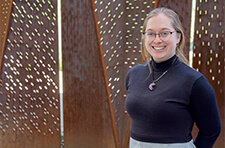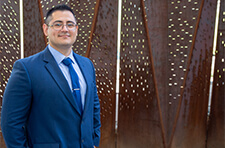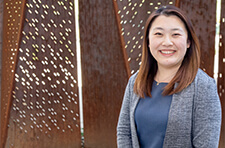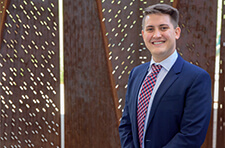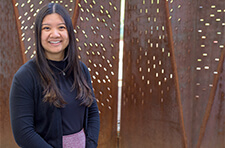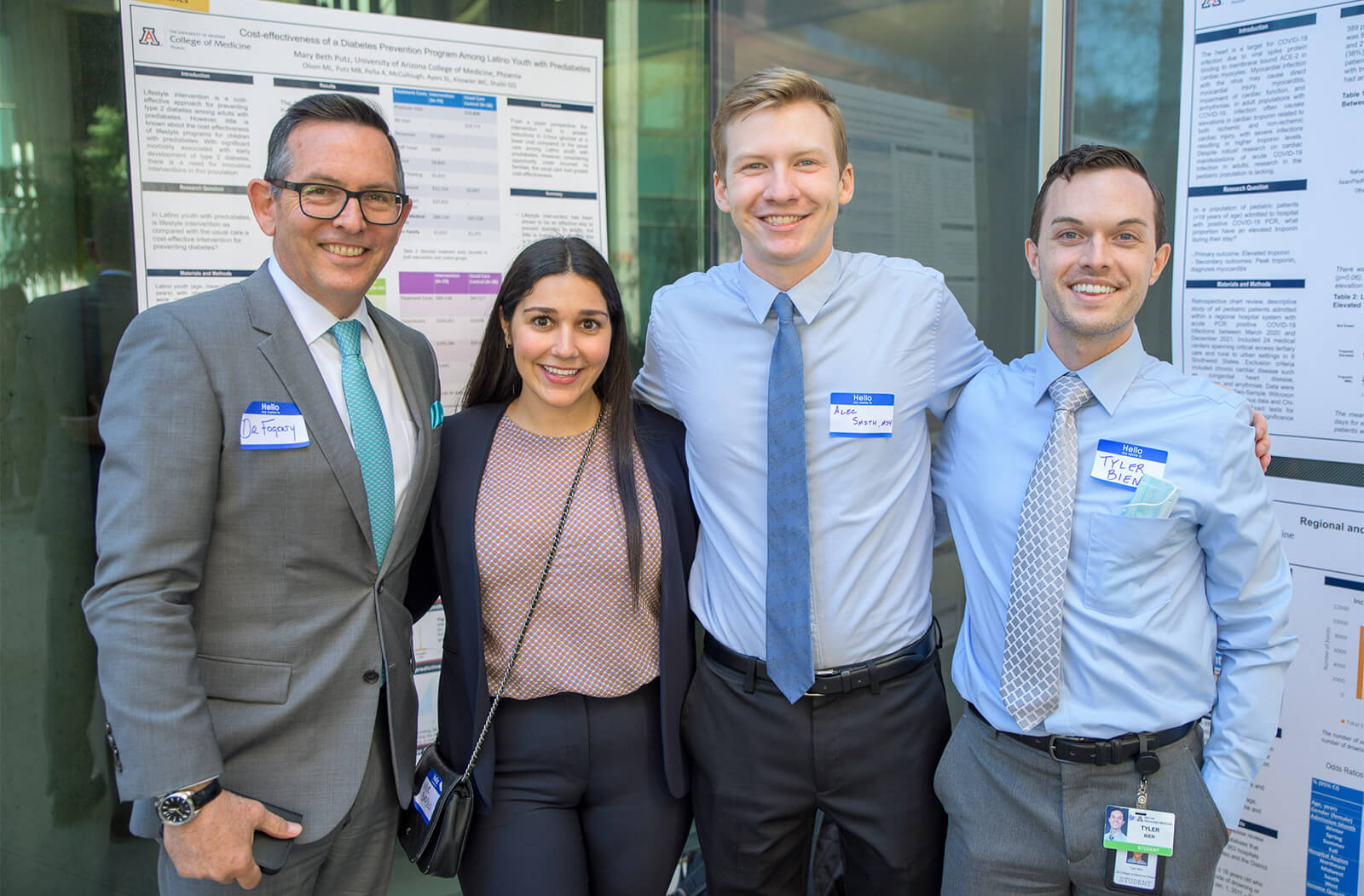
Graduating Medical Students Present Their Research at Annual Scholarly Project Symposium

Over the course of their medical school journey, students at the University of Arizona College of Medicine – Phoenix complete a publishable, hypothesis-driven, data-supported Scholarly Project.
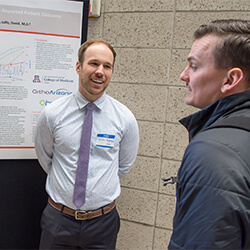
“Completion of a scholarly project during medical school provides these future physicians with insight regarding the inner workings of research that will enable them to better judge how to apply the results of published studies to the care of their future patients,” said J. Stephan Stapczynski, MD, a Scholarly Project advisor.
Medical science and clinical practice continuously evolve, requiring today’s physicians to review the latest literature and determine how it applies to their care of patients. More than 70 students presented findings from their research in pediatrics, cardiology, infectious disease, women’s health and other specialties.
The event — which is open to faculty, staff, fellow students and the community — is a forum for attendees to engage with the medical students, inquiring about their projects and its results. The U of A College of Medicine – Phoenix remains one of a few medical schools in the country to require a four-year, longitudinal project with a final thesis component. Nearly one-third of medical schools require demonstration of scholarly activity, which can take on a myriad of forms; about 57 percent require some form of a research project.
Working closely with mentors, students develop skills in medical information literacy, research methodology, evidence-based medicine and ethical standards related to scholarly inquiry and effective communication.
Their posters were lined throughout the first floor and lobby of the Health Sciences Education Building and into the outdoor canyon area.
Due to the ongoing COVID-19 pandemic, oral presentations — generally hosted by a select few medical students — were not conducted as they have been in years past. Instead of students lecturing to an audience in one of the college’s learning spaces, they recorded video presentations that were shared on the symposium’s website. Along with the oral data blitzes, each of the posters are available for online viewing.
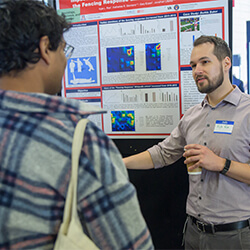
“What we have seen from candidates interested in our medical school — especially since their first board exam, Step One, has gone to pass/fail — is a need for them to separate themselves. Separate in a sense of showing they are a competitive medical student and, ultimately, a competitive applicant for residency programs,” said Glen Fogerty, PhD, MBA, associate dean of Admissions and Recruitment. “As we are only one of a handful of medical schools with this requirement, we enjoy giving our students this competitive advantage,” he added.
Several future physicians shared what they learned from the research process; what the outcome of their research was; and how they felt it will make them better physicians.
Our Students' Research
About the College
Founded in 2007, the University of Arizona College of Medicine – Phoenix inspires and trains exemplary physicians, scientists and leaders to advance its core missions in education, research, clinical care and service to communities across Arizona. The college’s strength lies in our collaborations and partnerships with clinical affiliates, community organizations and industry sponsors. With our primary affiliate, Banner Health, we are recognized as the premier academic medical center in Phoenix. As an anchor institution of the Phoenix Bioscience Core, the college is home to signature research programs in neurosciences, cardiopulmonary diseases, immunology, informatics and metabolism. These focus areas uniquely position us to drive biomedical research and bolster economic development in the region.
As an urban institution with strong roots in rural and tribal health, the college has graduated more than 1,000 physicians and matriculates 130 students each year. Greater than 60% of matriculating students are from Arizona and many continue training at our GME sponsored residency programs, ultimately pursuing local academic and community-based opportunities. While our traditional four-year program continues to thrive, we will launch our recently approved accelerated three-year medical student curriculum with exclusive focus on primary care. This program is designed to further enhance workforce retention needs across Arizona.
The college has embarked on our strategic plan for 2025 to 2030. Learn more.
